- Home
- Patricia Highsmith
The Cry of the Owl Page 5
The Cry of the Owl Read online
Page 5
“How long are you going to be in Langley?” she asked.
“I don’t know. Why?”
“Because you look like someone who’s not going to stay long. Someone who prefers a bigger city.”
Robert poured a half inch more wine for her, so that her glass was just half full. He realized he was wearing the gold cuff links Nickie had given him on their first wedding anniversary, and he pulled his jacket cuffs farther down over them. “Where’re you and Greg going to live when you’re married?”
“Oh, Greg likes Trenton. For business reasons. It’s ugly compared to Princeton, but Princeton’s expensive. He’s got a house picked out in Trenton, and we’re supposed to take it June first.”
“Do you like the house?”
She took a long time to answer, then said seriously, “I think what it amounts to is I’m not so sure I ought to marry Greg.”
“Oh? Why?”
“I’m not so sure I love him enough.”
Robert had no comment that seemed appropriate. She had finished her dinner.
“I’m not going to marry him,” she said.
“When did you decide that?”
“Just after Christmas.” She rolled the lighted end of her cigarette in the ashtray.
The waiter came to remove their plates, to take their orders for dessert. Robert didn’t want dessert, but the homemade apple pie was highly touted on the menu, and Jenny agreed to it when he suggested it, so he ordered two with coffee.
“My advice to you,” he said, “is to postpone the wedding a few months. Maybe you’re worried because Greg’s rushing you.”
Her slender eyebrows frowned slightly. “That wouldn’t do any good, postponing. I’m talking about something I already know.”
“You’ve talked to Greg about it?”
“Yes, but he thinks I’m going to change my mind. I talked to him between Christmas and New Year’s.”
The apple pie and coffee arrived. Robert ordered two Courvoisiers. She would end by marrying Greg, he thought.
“Can I ask you a very personal question?” Jenny asked.
“I suppose. What?”
“Did you leave New York because of a girl?”
Robert looked at her. He had not so much as blinked. “No. An argument in my office. Besides, the building I was living in was going to be torn down.”
She did not ask any more questions. He felt she knew he had lied. They sipped their brandies in silence.
“Can we go soon?” she said.
“Yes. Certainly.” He looked around for the waiter.
Robert paid the check at the door, then went back to the table to leave his tip.
The girl was putting on her snow boots by the wardrobe booth. He held her coat for her.
“Can we take a drive?” she asked.
“All right,” he said, surprised. “In your car or mine?”
“In yours.”
Robert did not know what to make of her mood. He saw her car in the restaurant’s parking lot. He opened the door of his car for her. It was an Oldsmobile convertible, one he’d had with Nickie for a year or so, but Nickie hadn’t wanted it when they separated. Ralph Jurgen had two cars.
“Where would you like to go?” he asked her.
“I don’t care.”
The only roads properly cleared of snow and ice were the main highways, and those were boring to take a drive on. He turned the heater on high, because the girl was huddled in her coat. She looked straight ahead through the windshield. He decided not to try to talk, but after a few minutes he began to feel uncomfortable. Why did she want to ride around with him on a night like this—the sleet had turned to a cold, fine rain—without any objective? What was she trying to do, tempt him to park somewhere and make a pass at her? Did a girl ask a man who’d acted like a voyeur to take her for a drive in his car? Robert felt suddenly wretched and depressed. “It’s a rotten night for driving,” he said, and pulled into a filling station. “Suppose we turn around?” He turned around and headed back in the direction of the restaurant.
“I don’t mind a night like this. Sometimes I feel as if I have to move, just move somewhere.” She was still staring through the windshield. “Sometimes when I feel like this, I take a long walk.”
Robert’s resentment, his hostility, slowly ebbed. The girl was not thinking of him at all. She was completely wrapped up in her own thoughts. He felt suddenly a curious sympathy and rapport with her—often he was in the same mood himself. “Out of touch with reality,” Nickie called it.
They got back to the restaurant’s parking lot, and the girl opened the door as soon as he stopped the car.
He got out as she did. “Know your way back? You have enough gas?”
“Oh, sure.” She sounded sad and lost.
Robert was disappointed at the way the evening was ending. He had wanted her to be cheerful, talkative, and he had imagined a second brandy, and lingering at the table until eleven or so. It was barely ten. “Thanks so much for the evening,” he said.
She might not have heard him. She got into her car.
“Jenny, if I’ve said anything that offended you tonight, I’m sorry. I shouldn’t have said anything about Greg. It’s none of my business.”
“No, it’s mine,” she said. “You didn’t offend me, honestly. It’s just that sometimes I can’t say anything. It’s terrible of me, I know, but I can’t help it.”
He smiled. “I don’t mind.”
“Will you come out to my house some time?”
“Yes, if you’d like. How about some time when Greg is there? You could introduce me as that friend of Rita’s.”
“I’m not going to see Greg till the twentieth of January. We have an agreement. That’s his birthday.”
“Well, after that.”
“What’s the matter with next wee-eek?” she asked, her smile spreading in a shy, uncontrollable way. “What’s the matter with Monday? Or Sunday? I can cook, you know.”
He should know. Robert did not want to come to her house when only she was there. He suddenly saw the girl’s behavior in a new light. He said painfully but firmly, “I’d rather wait till—till after January twentieth.”
“Don’t be so stubborn, I’m inviting you. Or are you so busy?”
“No. No, I’m not so busy.”
“Then come for dinner Sunday. Come around five. I’m going skiing with a friend in the afternoon, but I should be back by four. Do you ski?”
“Used to. But I haven’t any skis now.”
“You can rent them at this place where we ski. Come with us Sunday. Do you know where Vareckville is?”
He didn’t know, but she told him, and told him how to get to the ski station a mile outside the town. She seemed so happy that he might be coming, Robert couldn’t say that he wouldn’t come. He agreed to meet her at two P.M., and to have dinner with her at her house afterward.
Robert slept badly that night. It might have been the coffee, the brandy. Or the whole evening. He had taken the last of the Seconals he had brought from New York, and hadn’t troubled to find a doctor in Langley to get a new prescription. He had thought he wouldn’t need any more sleeping pills, but apparently he was wrong.
5
Jenny’s friend was a girl of about twenty named Susie Escham. She lived in the next house to Jenny, she said, which was half a mile away on the same road, and she was going to business school in Langley. She volunteered this information all at once to Robert. And from then on, even when they were skiing down the mild slope to the wood’s edge, and pulling themselves back by the hand rope, Robert felt Susie eying him, watching him with interest and curiosity. No doubt Susie knew Greg, knew Jenny and Greg were engaged, and thought it strange, therefore, that Jenny had another “boy friend.” Robert felt very old, an adult among adolescents. He was careful to be impersonal and rather inattentive to Jenny. Jenny was in high spirits, laughing at Robert when he fell, as he did twice, then racing down to help him get up again. She seemed to be quite a
good skier, and could have taken a more challenging hill than this one.
“Do you know Greg?” Susie asked Robert.
They were drinking hot coffee from the thermos Susie had brought. Jenny had finished her cup and was several yards away, about to go down the hill again.
“No, I haven’t met him,” Robert said.
“Oh? I thought you knew Jenny a long time.”
Robert didn’t know what Jenny had told her. Susie’s bright, dark eyes were on him. She had a small, full mouth inclined to smile, and she was smiling mischievously now, her lips pressed together. “No, not long.” Length, especially in time, was a subjective matter, Robert thought.
“How’d you meet Jenny?”
The prying amused and annoyed him, too. “Through a mutual friend,” he replied. Then he stood up from the wooden bench and felt for his cigarettes. “Would you like one?”
“I don’t smoke, thank you. You work in Langley, Jenny said.”
“Yes. Langley Aeronautics.” Robert glanced down at his trouser cuffs, unfashionably folded into the tops of his rented ski boots. “Well, I suppose I’ll try it again,” he said, moving toward the starting line. Jenny was coming up by the hand rope.
“You have a house in Langley?”
“No, an apartment,” he called over his shoulder, and then he was out of talking range.
Jenny took one hand from the rope and extended it to him. “Wow!” she said, out of breath, her cheeks bright pink. “Why don’t they get a ca-able car here?”
Robert had checked an impulse to take her hand and pull her up the last couple of feet. “I don’t think I’ll go down again after all,” he said, frowning down the slope. “Nope, I’ve had it.”
“You’re getting old,” Jenny said.
“You said it.”
“How old are you?”
“I’ll be thirty in June.”
They left just before four, Susie and Jenny in Jenny’s car and Robert in his own. He drove at a good distance behind them to Jenny’s house. Jenny drove past her house to drop Susie off, and her car was out of sight when Robert turned in at her driveway. He hoped Jenny hadn’t told Susie that he was coming to her house to have dinner. The goodbye Robert had said to Jenny had been calculated to serve just as well as a goodbye for the day. He waited by his car until Jenny’s Volkswagen pulled up beside his.
“Let’s have a fire,” Jenny said.
The house was warm enough, though Jenny said it leaked badly, and she was still finding places to stop up with insulation wool and weatherstripping. They made a fire in the living-room fireplace, and Robert went out to gather more wood. Jenny was making stewed chicken with dumplings. They had bourbon Manhattans in the living room, and looked through Jenny’s photograph album. Most of the pictures were of her family, though there were five or six “boy friends.”
“That’s the fellow I liked so much,” Jenny said, pointing to a husky blond young man in a tuxedo.
He did not look at all remarkable or interesting to Robert. “The one your family didn’t like?”
“Yes. Now I’m glad they didn’t. He married some dope of a girl last year. I think I was just infatuated.”
More pictures. Jenny and her teen-age brother in bathing suits at her family’s summer camp near Scranton. Jenny’s brother Eddie, who died at twelve.
“Eddie was very good at drawing. I think he might have been a painter,” Jenny said. “I still have some of his drawings.”
Robert glanced at her. Her face was sad, but there were no tears in her eyes. “That man you mentioned, visiting in your house before your brother got sick—what did he look like?”
“Oh—” Jenny looked off into space. “Like an ordinary man,” she said. “Brown hair, brown eyes. About forty-five. A little bit heavy. He had false teeth.”
Robert smiled, with a funny relief. He wasn’t in the least like Brother Death in his dream. Robert had been afraid he would be.
“Why?” Jenny asked.
“Well—I have a strange dream now and then. I go up to a man sitting at a table by himself, a man in a priest’s clothes. I say, ‘Are you Brother Green?’ or sometimes it’s ‘Brother Smith’ or ‘Brother Jones’ or almost anything. Then he looks up at me with a smile and says, ‘No. Brother Death.’”
“And then what?”
“Then I wake up.”
“And what does he look like?”
“He has black straight hair with a little gray at the temples. He’s got some gold in one tooth on the side. Black-rimmed glasses.” Robert shrugged. He could have said more, could have drawn an accurate picture of Brother Death on paper. He looked away from Jenny’s attentive face.
“And then you’re depressed,” she said.
“Oh, not for long. Maybe two minutes,” Robert said, smiling. He stood up. “Can’t I do something to help you in the kitchen?”
“No, thanks. I think death will come like that, in the form of a person. When you meet that person or see him or her, I think you’ll know it, because it’ll have something very close to do with you.”
Robert started to say, “That’s a lot of nonsense,” but he didn’t. Jenny took her ideas very seriously, that was plain. “I haven’t seen the upstairs of your house yet. Want to take me on a tour?”
There were four square rooms upstairs going off the hall, plus a bathroom. The rooms were sparsely but pleasantly furnished, and there were flowerpots everywhere, not too many but just enough, some set on Victorian flower stands four feet high.
“Have you got a screwdriver?” Robert asked.
“Sure. For what?”
He nodded toward a closet door that stood ajar, one that he had tried to close. “I can fix that in a minute. Also the window in your bedroom. If I reset that latch, you won’t have to prop it up with a book.”
She went down to the kitchen for a screwdriver, and came back with a hammer and a box of screws also.
Forty-five minutes later, when Robert came downstairs, he had reset two door latches, the window latch, and had taken down a precariously sagging glass shelf in the bathroom and fixed it to the wooden panel below the medicine cabinet. Jenny had to go up to see what he had done.
“Gee, it’d take me a week to do all that!” she said.
Robert noticed that she had put on perfume. “I brought some wine,” he said, suddenly remembering. He put on his overshoes and went out to the car for it. It was a bottle of white wine, which luckily went with chicken.
They had been sitting at the table only five minutes when a car came up the driveway.
“Gosh, a dropper-inner,” Jenny said, going to the door.
Brakes squeaked, and a door slammed.
“Greg, you pro-omised,” Jenny said, and Robert got to his feet.
Greg came in the door unsmiling.
“Greg, this is—this is—”
“Robert Forester,” Robert said. “How do you do?”
“How do you do?” Greg glanced at the table, at Jenny, then looked at Robert. “I thought I ought to meet you.”
“Well, now you have. We’re in the middle of dinner, Greg.” Jenny looked miserable. “Can’t you go? Just for now?”
Absolutely the wrong thing to say, Robert saw, because Greg’s eyes flashed with anger.
“I didn’t mean to crash in in the middle of dinner, but I don’t see why I should go, either. Why don’t I wait in the living room?”
Jenny made a hopeless gesture and turned toward Robert.
Greg stomped into the living room in his stocking feet, his shoes evidently having come off in his rubber boots.
“Greg, would you please wait upstairs?” Jenny said from the kitchen doorway.
Robert smiled nervously. Her tone was one a sister might use to a brother she wanted a favor from. Greg was a big fellow, over six feet. Robert did not relish the thought of a fight with him.
“No,” said Greg, and Robert heard the crackle of papers as he sat down on the sofa.
At least Greg could not see the
m in the kitchen. Jenny sat down, and then Robert did. There were tears in her eyes. Robert shrugged and smiled at Jenny, picked up his fork and gestured for her to do the same. She lifted her fork, then put it down again. Then she went into the living room and put a record on the phonograph. Robert stood up as she came back to the table.
“Would you like me to leave?” he whispered.
“No. I wouldn’t like you to leave.”
They ate in small bites but with determination. The Swan Lake ballet played on. The melodrama of the situation made it absurd to Robert, but Jenny was taking it so hard he couldn’t smile. He handed her the handkerchief from his breast pocket.
“There’s nothing to worry about,” he said softly. “I’ll leave right away. You’ll never have to see me again.” He reached for her left wrist, gave it a comforting press and released it, but she grabbed his hand.
“It’s so rude and unfair. Susie did it. I know she did. Damn her.”
“But there’s nothing so tragic about it.” He pulled his hand free from hers, had to pull twice to free it. The coffee looked done, so he got up and turned it off. Jenny was bent over her plate. He touched her shoulder. “I’ll be going,” he said, then realized Greg was standing in the doorway. He had turned the music off.

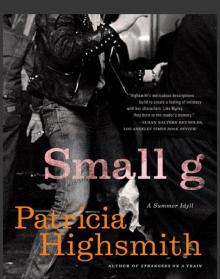 Small G: A Summer Idyll
Small G: A Summer Idyll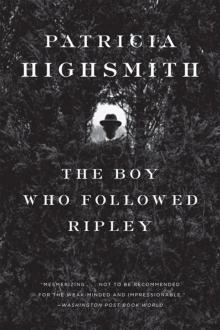 The Boy Who Followed Ripley
The Boy Who Followed Ripley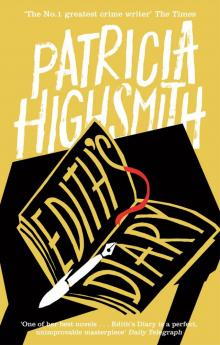 Edith's Diary
Edith's Diary Ripley's Game
Ripley's Game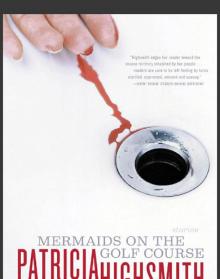 Mermaids on the Golf Course: Stories
Mermaids on the Golf Course: Stories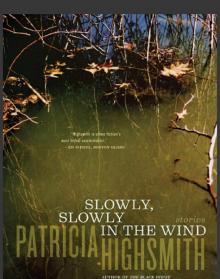 Slowly, Slowly in the Wind
Slowly, Slowly in the Wind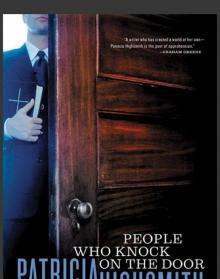 People Who Knock on the Door
People Who Knock on the Door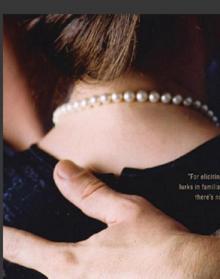 The Glass Cell
The Glass Cell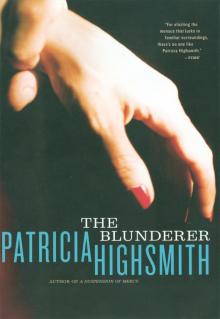 The Blunderer
The Blunderer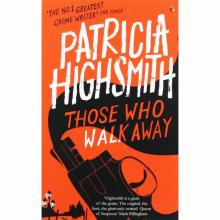 Those Who Walk Away
Those Who Walk Away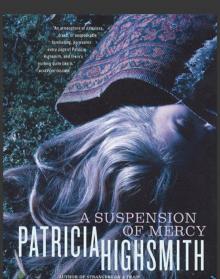 A Suspension of Mercy
A Suspension of Mercy Eleven
Eleven Found in the Street
Found in the Street Ripley Under Ground
Ripley Under Ground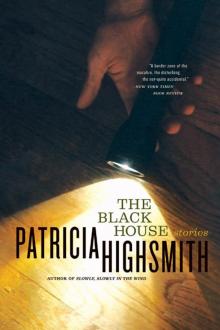 The Black House
The Black House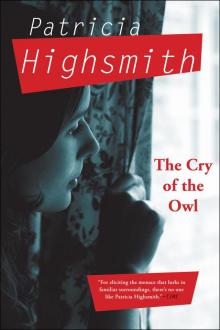 The Cry of the Owl
The Cry of the Owl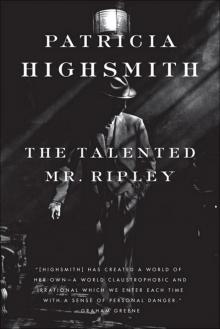 The Talented Mr. Ripley
The Talented Mr. Ripley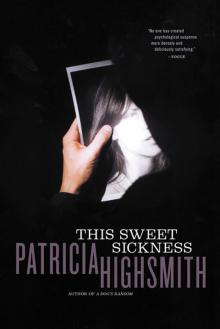 This Sweet Sickness
This Sweet Sickness The Two Faces of January
The Two Faces of January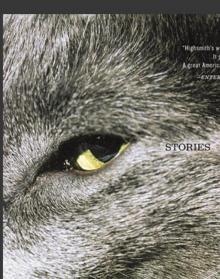 The Animal-Lover's Book of Beastly Murder
The Animal-Lover's Book of Beastly Murder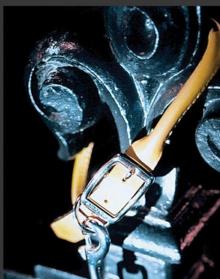 A Dog's Ransom
A Dog's Ransom Deep Water
Deep Water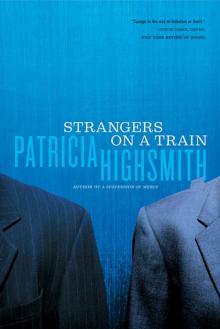 Strangers on a Train
Strangers on a Train Ripley Under Water
Ripley Under Water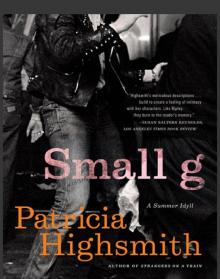 Small g
Small g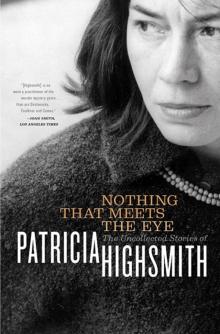 Nothing That Meets the Eye
Nothing That Meets the Eye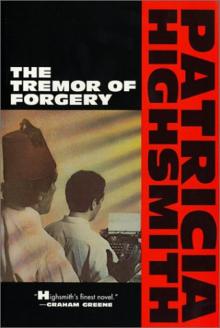 Patricia Highsmith - The Tremor of Forgery
Patricia Highsmith - The Tremor of Forgery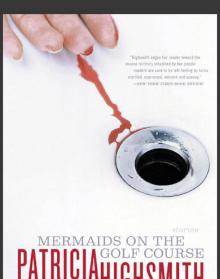 Mermaids on the Golf Course
Mermaids on the Golf Course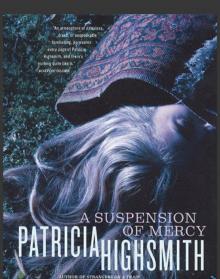 Suspension of Mercy
Suspension of Mercy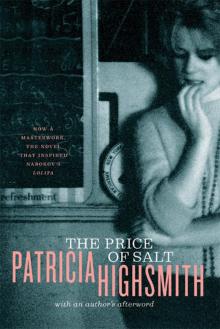 The Price of Salt, or Carol
The Price of Salt, or Carol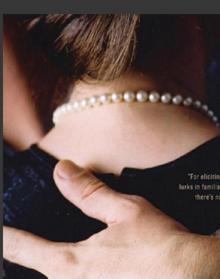 Glass Cell
Glass Cell